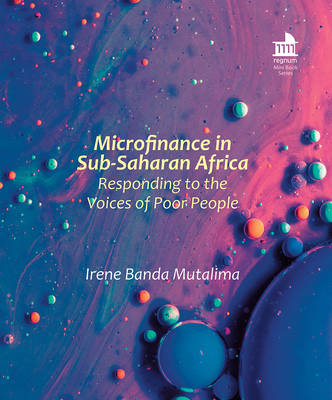
- Retrait gratuit dans votre magasin Club
- 7.000.000 titres dans notre catalogue
- Payer en toute sécurité
- Toujours un magasin près de chez vous
- Retrait gratuit dans votre magasin Club
- 7.000.000 titres dans notre catalogue
- Payer en toute sécurité
- Toujours un magasin près de chez vous
Description
Poverty reduction through microfinance is tied to the belief that access to credit enables poor people to increase business earnings and improve livelihoods. Often the church has embraced microfinance as part of its theology of social transformation. Microfinance practitioners, therefore, must prudently manage their institutions and ensure improvements in poor people's lives--a complex combination, given that livelihood changes can only be confirmed by people experiencing poverty. This mini book comes out of research to investigate how poor people can inform microfinance practitioners for improved livelihoods. Based on interactions with the Chinyika Community in rural Zimbabwe and the COSUN women's group of peri-urban Zambia, the book allows their voices to offer lessons for microfinance practitioners.
The key finding of the research is the value of genuine "dialogue space" where poor people can influence beneficial actions. To counter the challenges of limited capacity to recognize root causes of poverty, and the lack of informed competence to negotiate livelihood solutions, the research recommends that community leadership engender safe community dialogue spaces for individual and collective agency, with the ability to identify root problems and trigger appropriate actions before livelihoods deteriorate. The research identifies the church as one such credible community leader.
Spécifications
Parties prenantes
- Auteur(s) :
- Editeur:
Contenu
- Nombre de pages :
- 81
- Langue:
- Anglais
- Collection :
Caractéristiques
- EAN:
- 9781506497501
- Date de parution :
- 27-06-23
- Format:
- Livre broché
- Format numérique:
- Trade paperback (VS)
- Dimensions :
- 154 mm x 186 mm
- Poids :
- 117 g







